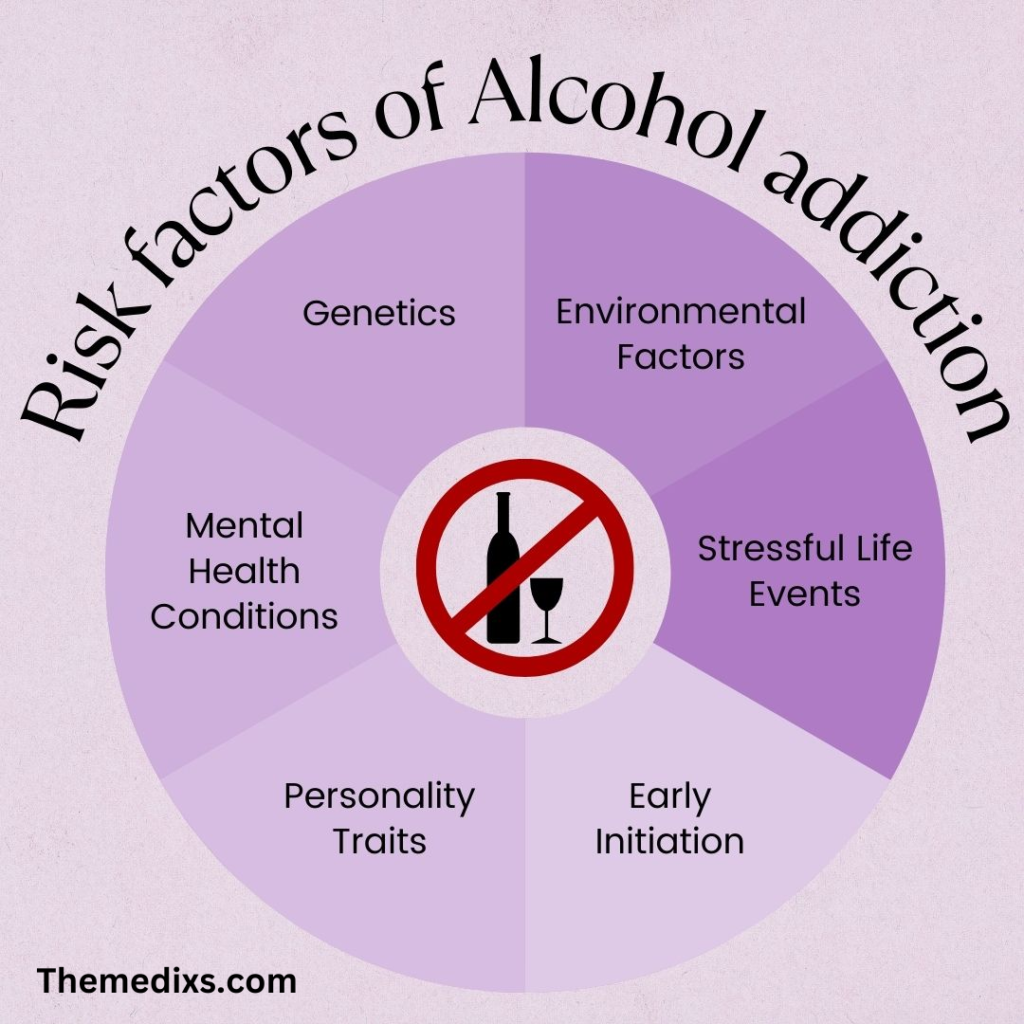Alcoholism, also referred to as alcohol use disorder (AUD), is a pervasive and debilitating condition that affects millions of individuals worldwide. It is characterized by an inability to control alcohol consumption despite its negative impact on physical health, mental well-being, relationships, and social obligations. This blog delves into the intricacies of alcoholism, exploring its causes, symptoms, consequences, and the journey to recovery.
The Nature of Alcoholism
Alcoholism isn’t always merely a lack of willpower or self-discipline. It is a chronic disorder that alters mind chemistry and rewires neural pathways, making it an increasing number of difficult for individuals to regulate their alcohol intake. The American Psychiatric Association classifies AUD as a mental health disorder, emphasizing that it requires medical attention and compassionate support.
Alcoholism often develops gradually. What begins as occasional drinking for social or recreational purposes can escalate into dependency. For some, ingesting turns into a manner to cope with stress, anxiety, or unresolved trauma. Over time, the brain`s reward system turns into conditioned to associate alcohol with relief or pleasure, reinforcing the behavior.
Causes of Alcoholism

The reasons of alcoholism are multifaceted, stemming from a combination of genetic, psychological, environmental, and social factors.
- Genetics: A family history of alcoholism increases the probability of growing the condition. Certain genetic markers are associated with heightened susceptibility to alcohol dependency.
- Psychological Factors: Mental health conditions along with depression, anxiety, and post-traumatic strain disorder (PTSD) often co-occur with AUD. Alcohol may initially offer transient relief from psychological distress however ultimately exacerbates these conditions.
- Environmental Influences: Exposure to environments wherein alcohol consumption is normalized or glamorized can contribute to excessive drinking. Peer pressure, cultural norms, and easy availability of alcohol play significant roles.
- Childhood Experiences: Adverse childhood experiences, such as neglect, abuse, or exposure to parental alcoholism, are strongly correlated with the development of AUD in adulthood.
Recognizing the Symptoms
Recognizing alcoholism may be challenging, mainly in its early stages. Symptoms can also additionally variety from slight to severe and consist of:
- Difficulty limiting alcohol consumption.
- Persistent cravings or preoccupation with drinking.
- Neglecting responsibilities at work, school, or domestic because of ingesting.
- Continuing to drink regardless of adverse consequences, along with health problems or strained relationships.
- Developing tolerance, requiring extra alcohol to achieve the same effect.
- Experiencing withdrawal symptoms, including nausea, sweating, or anxiety, while not drinking.
The Path to Recovery

Recovery from alcoholism is a deeply personal journey that requires courage, commitment, and support. It often includes multiple stages:
- Acknowledgment: Recognizing the problem is the primary and maximum important step. This degree frequently comes after a significant life event, along with a health scare or intervention by loved ones.
- Detoxification: Detox is the process of eliminating alcohol from the body. This degree can be physically and emotionally challenging, often requiring medical supervision to manage withdrawal symptoms safely.
- Rehabilitation: Rehab programs provide a structured environment for people to address the underlying causes of their addiction. These programs frequently consist of therapy, counseling, and educational sessions.
- Therapy and Counseling: Behavioral therapies, along with cognitive-behavioral remedy (CBT), assist people increase coping techniques and change destructive thought patterns. Group therapy and peer support groups, like Alcoholics Anonymous (AA), provide a sense of community and shared experiences.
- Medication: In a few cases, medications can be prescribed to reduce cravings or manage withdrawal signs. These consist of naltrexone, acamprosate, and disulfiram.
- Lifestyle Changes: Embracing a healthy lifestyle, including regular exercise, balanced nutrition, and mindfulness practices, can support long-term healing.
Supporting Loved Ones
Family and friends play a vital role in the healing process. Offering nonjudgmental support, educating oneself about alcoholism, and encouraging expert help can make a widespread difference. However, it`s similarly important for loved ones to set up boundaries and seek support for themselves, as caregiving may be emotionally taxing.
Preventing Relapse
Relapse is a common part of the recovery journey and should not be regarded as a failure. Identifying triggers, including stress or social situations, and growing coping techniques are essential for preventing relapse. Regular therapy sessions and support group meetings can help people to stay on track.
A Message of Hope
While alcoholism is a challenging condition, healing is possible. Countless individuals have conquer alcohol addiction and rebuilt fulfilling lives. The journey can be arduous, however each step forward is a testament to resilience and the human spirit`s capacity for growth.
Conclusion
Alcoholism is a complex interplay of biological, psychological, and social factors. Addressing it requires a holistic approach that combines medical intervention, therapy, and community support. By fostering understanding and compassion, we can create an environment where individuals feel empowered to seek help and embark on the path to recovery. If you or someone you know is struggling with alcoholism, reach out to a healthcare professional or support group—help is available, and recovery is within reach.








